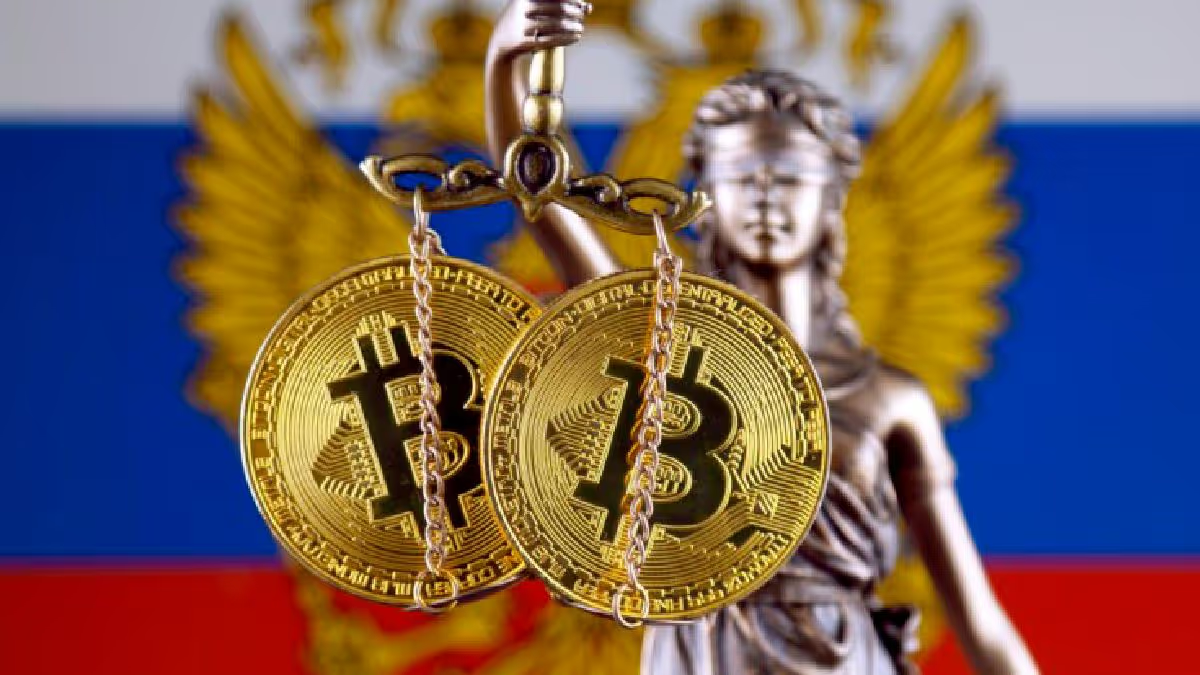No, Bitcoin Won’t Save Russia from Western Sanctions

Background
Western governments have unleashed punishing sanctions on Russia in response to their invasion of Ukraine, cutting off Russia’s financial system (including its Central Bank), imposing severe export controls across a range of key industries, and targeting Putin and his inner circle personally. Some onlookers have speculated that bitcoin and cryptocurrency could enable Russia to bypass these restrictions(1). But it is unlikely that any cryptocurrency will provide a meaningful way for the Russian institutions, officials, oligarchs subject to these specific sanctions to accomplish widespread asset flight. Instead, bitcoin is both helping Ukrainians directly raise funds and enhancing Western pressure on the Russian government by enabling its citizens to escape the collapsing ruble. (2,3)
Policymakers should be careful when encountering exaggerated claims about bitcoin’s role in sanctions evasion. Rather than viewing bitcoin as a national security challenge, the U.S. should explore how, as some experts have noted(4), bitcoin may undermine authoritarian states and bolster U.S. strategic objectives.
Bitcoin is ill-suited to help Russia evade sanctions.
Bitcoin currently is far too small to replace the dollar and the euro as a trade-currency. Russia’s annual (pre-war) exports total roughly $400 billion (5), around 50% of Bitcoin’s current market capitalization. Attempting to sell Russian goods in Bitcoin (to a constrained set of buyers) would exaggerate its already high volatility and consequently would make it hard for Russia to predict or manage its commodity revenues. Rather, Russia’s substantial gold and yuan reserves make those assets a more viable back-up to support ongoing, limited, trade activities.(6)
Major exchanges maintain strict compliance with U.S. and other jurisdictions’ sanctions regimes. They are highly responsive to blacklist designated addresses and non-compliant exchanges. Thus, sanctioned entities and individuals will struggle to find fiat off-ramps to cash out.
Sanctions violators will have a hard time hiding their transactions with bitcoin or other cryptocurrencies.(7) Cryptocurrency monitoring companies cooperate closely with law enforcement, using advanced tools and the inherent transparency of blockchains to flag violations in real time.
U.S. Treasury officials themselves “are not overly worried about crypto undermining the effort to choke off the Kremlin’s access to capital. Laundering large amounts of money through a dizzying array of digital wallets and exchanges is expensive, time-consuming and would likely be visible in the broader crypto market, given the massive investment portfolios of individuals and institutions named in the sanctions.''(8)
Rather than Bitcoin, Russia likely will turn to China for help.
Just weeks before invading Ukraine, President Putin and Chinese President Xi Jinping declared a “no-limits” strategic partnership.(9) Russia and China each have developed mutually interoperable alternatives to the SWIFT cross-border payments network, a major tool to enforce U.S. sanctions.(10)
Rather than Bitcoin, Russia may attempt to use these mechanisms to bypass sanctions, though it remains to be seen just how overt, if at all, President Xi will be in offering this assistance.(11) Given that China banned all cryptocurrency transactions and ejected Bitcoin mining in 2021, Bitcoin is not likely to be particularly relevant or helpful to Russia in the current crisis.(12)
Bitcoin is helping vulnerable populations in this crisis and otherwise supports U.S. interests.
As a globally distributed digital settlement system, Bitcoin allows anyone to transfer value peer-to-peer without centralized intermediaries. Amidst the crisis, Ukrainian citizens, NGOs, and the Ukrainian government itself have turned to bitcoin and cryptocurrency to raise more than $22 million in aid.(13)
Everyday Russians are turning to Bitcoin and dollar-pegged stablecoins to escape the collapsing ruble.(14) This will aggravate Russia’s currency distress and enable capital to flow out to the West. Broad, indiscriminate sanctions that limit Russian citizens’ access to cryptocurrency would violate a core principle of U.S. policy articulated by Deputy National Security Advisor Daleep Sing to only impose sanctions that are “targeted to avoid the appearance of punishing the Russian civilian population.”(15)
- https://www.nytimes.com/2022/02/23/business/russia-sanctions-cryptocurrency.html
- https://www.elliptic.co/blog/live-updates-millions-in-crypto-crowdfunded-for-the-ukrainian-military
- https://www.coindesk.com/markets/2022/02/28/ruble-denominated-bitcoin-volumes-surges-to-9-month-highs/
- https://www.realclearpolicy.com/articles/2022/02/01/bitcoin_supports_us_national_economic_strength_814605.html
- https://oec.world/en/profile/country/rus?subnationalTimeSelector=timeYear
- https://www.ft.com/content/526ea75b-5b45-48d8-936d-dcc3cec102d8
- https://www.nbcnews.com/tech/crypto/bitcoin-putins-economic-savior-s-unlikely-experts-say-rcna17724
- https://www.politico.com/news/2022/02/25/russia-crypto-sanctions-00011886
- https://www.reuters.com/world/europe/russia-china-tell-nato-stop-expansion-moscow-backs-beijing-taiwan-2022-02-04/
- https://asiatimes.com/2022/02/chinas-swift-alternative-may-undercut-us-sanctions/
- https://asiatimes.com/2022/02/china-can-break-swift-sanctions-but-at-a-high-cost/
- https://www.bbc.com/news/technology-58896545
- https://www.elliptic.co/blog/live-updates-millions-in-crypto-crowdfunded-for-the-ukrainian-military
- https://www.reuters.com/markets/europe/rouble-crypto-trading-soars-sanctions-hit-russian-currency-2022-02-28/
- https://www.banking.senate.gov/imo/media/doc/Singh%20Testimony%209-12-18.pdf



.svg)
.avif)




